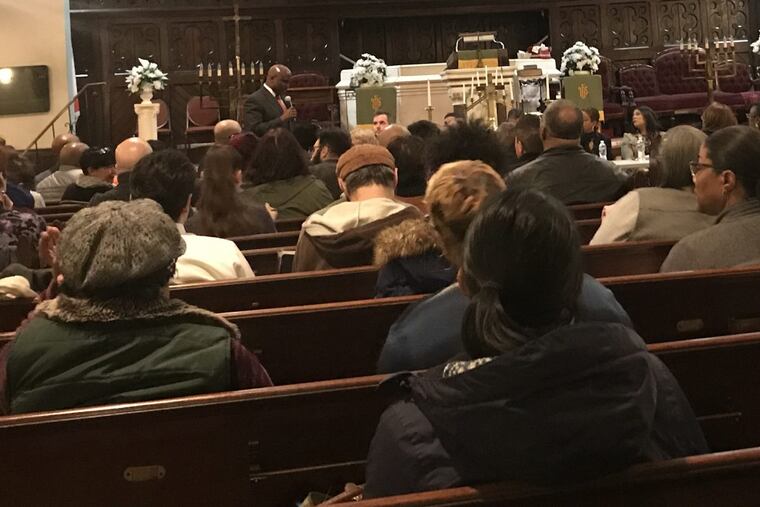Safe injection sites in Philly: What city officials should do to gain the public's trust | Opinion
After decades of federal and local policies that stigmatized and criminalized drug users it is unreasonable to expect Philadelphians to just trust the process. The concerns are understandable and the skepticism is legitimate.

Being a pioneer is never easy. When Philadelphia officials green-lit Comprehensive User Engagement Sites (CUES), commonly known as safe injection sites, they made a brave decision as harm-reduction pioneers. This initiative should have been a slam dunk. After all, there aren't many other public health interventions that have been so vigorously studied, save lives, are shown to not harm communities, and save money.
But no matter how brave, well-intended, or well-researched the decision was, the city has an obligation to make sure its citizens have the opportunity to be heard as a part of the process.
On Friday, it became clear that there is a large disconnect between what Philadelphia officials who support CUES intended to announce and what message was heard by some community members.
At a panel discussion organized by Solomon Jones, a newspaper columnist and radio talk-show host who has been vocal in his opposition to such sites, more than 200 people filled Mt. Tabor AME Church in North Philadelphia to demand answers. The event featured council members, a community member from Kensington, Inquirer columnist Mike Newall, a member of the clergy, and a member of the treatment community.
Confusion, anger about the process, and misinformation dominated the conversation. Many attendees tried to understand if the officials' announcement was the start of a conversation about CUES or a decision taken without public discussion?
Rochelle Bilal, president of the Guardian Civic League, stood up to speak. "First of all, to the commission, y'all started off wrong," she said. "You had a discussion amongst yourself … and what we got in the community was 'safe injection sites coming to your town.' "
Bilal continued, saying: "You didn't educate people what this was going to be about. So now we have a bunch of angry people who may not have all the information."
She is not wrong. After decades of federal and local policies that stigmatized and criminalized drug users, it is unreasonable to expect Philadelphians to just trust the process. The concerns are understandable and the skepticism is legitimate.
What is not legitimate is that many of the questions raised in opposition to CUES have answers and that the public officials who support CUES have not been out in the community responding to concerns.
We cannot sacrifice the lives of Philadelphians to punish the city for a broken process. Opposing CUES out of spite and anger is doing exactly that. However, the battle of public opinion is far from over. The damage can be undone. Here's how:
Health Commissioner Thomas Farley, District Attorney Larry Krasner, Police Commissioner Richard Ross, Mayor Kenney, Councilwoman Helen Gym, and every other public official who supports CUES should go on a tour through Philadelphia to set the record straight on what was announced, explain how community needs will be addressed, and provide evidence that CUES can save lives without bringing new harm. Commissioner Ross should share what he saw in his visit to Vancouver that made him change his position from "being adamantly against [the sites] to having an open mind." The medical community should also join this effort. After all, drug-use disorder is a medical issue.
This tour needs to start immediately. Philadelphians are dying of drug overdoses every day and there is no time to waste.
The city should also articulate a plan to evaluate the sites once they are established. Community members must know that if a site somehow defies all evidence and has a negative impact on a community, it can always be shut down or moved.
Pioneers get the glory, but they also need to put in the work. Giving a thumbs-up to CUES is simply not enough. In order to get community members to support the life-saving initiative of CUES, much more work must be done.
Abraham Gutman is an Israeli independent writer and economist based in Philadelphia. He currently works as a senior data and policy analyst at the Center for Public Health Law Research at Temple University. @abgutman.